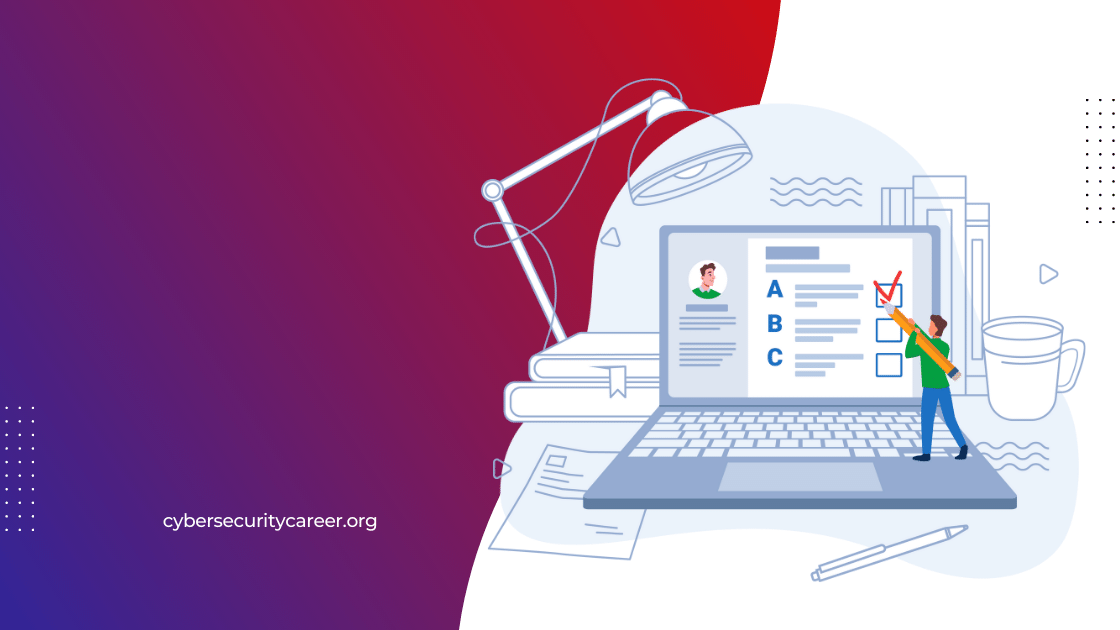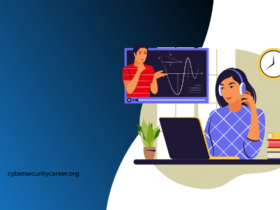Cybersecurity is a big topic these days, and rightly so. It’s not just about protecting your online identity and information; it’s also about protecting your business from cybercrime. In this blog post, we will explore cybersecurity and how you can protect your business from the dangers of cybercrime. We will also offer tips on better safeguarding your data and digital assets.
What is Cyber Security?
Cyber security protects computer networks and data from unauthorized access, use, or disclosure. Data can be saved through various methods, including firewalls, antivirus software, and encryption. Cyber security encompasses both preventative measures and responses to attacks. Preventive measures include training employees on cyber security best practices and monitoring systems for any signs of intrusion. In the event of an attack, responders may identify malicious code or user activity and take appropriate action, such as reporting the breach to authorities or disabling the compromised system.
Types of CyberSecurity
Cyber Security protects electronic information and systems from unauthorized access, use, or disclosure. Cybersecurity encompasses a broad range of activities and technologies that help protect organizations from both physical and cyberattacks. Cybersecurity professionals work to assess risks and implement mitigation strategies to protect organizational assets.
There are many different types of cyber security threats and vulnerabilities. Some common types of cyber security threats include:
- Hacktivism- A cybercrime in which perpetrators commit crimes to cause economic harm, embarrassment, or disruption to a company or individual.
- Data breaches- When hackers steal sensitive information such as social security or credit card numbers.
- Spyware/malware-Programs installed on computers without the user’s knowledge or consent can perform malicious activities such as stealing confidential data or tracking users’ online activity.
The Dangers of Cybersecurity
Cybersecurity is one of the most critical aspects of business today. It has become so important that even the United States Federal Bureau of Investigation (FBI) has taken notice and created a cyber security unit. Cybersecurity is not just about protecting your website or computer system from hackers but also your data and identity. As we’ve seen recently with many large companies, cyber crime can be expensive and damaging. Here are some of the dangers of cybersecurity:
- According to the National Institute for Standards and Technology (NIST), tens of billions of dollars are lost each year to cyberattacks.
- Your data could be stolen and used for criminal purposes, such as fraud or identity theft.
- A hacker could compromise your computer, who could then access your confidential information or view your online activities.
- A malware infection can damage your computer or take it over completely, leading to data loss and possible financial losses.
- A denial-of-service attack can prevent you from accessing your web applications or websites, which could cause substantial business disruptions.
- Staff training on cybersecurity is critical to avoiding these types of incidents from occurring in the first place!
- Cybersecurity solutions can help protect you against all these threats, so ensure you get the right one for your needs!
The Types of Cyber Attacks
Cybersecurity is a growing concern for businesses of all sizes. This article will discuss the different types of cyber attacks and how to protect yourself from them.
There are four main types of cyber attacks: technical, physical, social engineering, and financial.
Technical Attacks involve attacking a computer system’s hardware or software to cause damage or data theft. Standard methods used in technical attacks include viruses, worms, and Trojan horses.
Physical Attacks involve accessing a computer system by force or coercion – for example, breaking into the system room. Physical attacks can also be carried out through electronic spying, whereby attackers use spy tools to access passwords and other confidential information.
Social Engineering Attacks involve exploiting human vulnerabilities to access sensitive information or gain unauthorized access to systems. Social engineering attacks can trick people into revealing their login credentials or PINs or by duping them into emailing someone they know with a malicious attachment.
Lastly, financial Attacks involve using digital threats to obtain money or personal information from victims. For example, hackers may steal bank account numbers or login details to drain funds from victims’ accounts.
What Can You Do to Protect Yourself?
Cybersecurity is a hot topic these days. Everyone is talking about it and for a good reason. Cyber attacks are on the rise, and they can be very damaging.
Here are some tips to help you protect yourself from cyber attacks:
- Use a password manager. This is one of the most important things you can do to protect yourself against cyber attacks. A password manager keeps all your passwords in one place, so you don’t have to remember them all. There are many different password manager options available, so it’s worth checking out to see which is best for you.
- Keep your computer and phone up-to-date. Ensure your computer is updated with the latest security patches and software updates. You also want to ensure that your phone is up-to-date with the latest security features and apps. This way, your phone will be protected if someone tries to attack your phone with malware or other malicious software.
- Always protect your data. Keep all of your data – including personal information like passwords – safe by encrypting it using a robust encryption method such as AES-256 bit encryption technology. This will help protect your data from being accessed by unauthorized people or devices.”
Prevention Methods for Cyber Attacks
Prevention methods for cyber attacks can be divided into physical and virtual. Physical prevention methods include the installation of proper firewalls and antivirus software and maintaining regular backups. Virtual prevention methods include using strong passwords and not sharing personal information online.
How to Detect and Respond to a Cyber Attack?
Cybersecurity is the practice of protecting electronic information and systems from attack or unauthorized access. It encompasses various disciplines, including computer science, engineering, law, and business.
There are many ways to detect and respond to a cyber attack. You can use antivirus software to scan your computer for viruses and malware. You can also use firewalls to block incoming attacks. You can also install an intrusion detection system to monitor for malicious activity on your network.
If you notice suspicious activity on your computer, you should take measures to protect yourself. For example, you can change your computer’s password, file permissions, and security settings. You should also report any suspicious activity to your IT department so they can investigate the matter.
How to Protect Yourself from Cyber Attacks?
There is no one-size-fits-all answer to this question, as the best way to protect yourself from cyber attacks will vary depending on your circumstances. However, some tips for safeguarding yourself from online attacks include using a strong password and locking down your computer settings. Additionally, you can install security software on your computer and keep up to date with the latest virus warnings.
How to Protect Your Data from Theft?
Cybersecurity is the practice of protecting electronic data from intrusion, theft, or destruction.
There are many ways to protect your data from cybercrime, but the most important thing you can do is keep up-to-date on the latest security threats and practices. Here are some tips:
Regularly update your software. Hackers constantly improve their techniques, so they must stay notified of new security updates and install them as soon as they become available.
Install an antivirus program. Antivirus software scans your computer for malicious files and programs and can block them before they damage your system.
Educate yourself about cybersecurity. By understanding how hackers operate and what steps you can take to protect yourself, you’ll be better at defending against attacks.
Conclusion
Cybersecurity is a growing concern for businesses of all sizes, and everyone must understand the basics of cybersecurity to protect their company from potential threats. This article will discuss some of the most common types of cyber attacks and how you can protect yourself from them. This information will help you better understand cyber security and why it’s essential for your business.










Leave a Reply